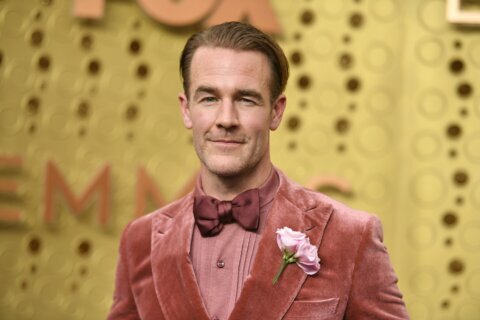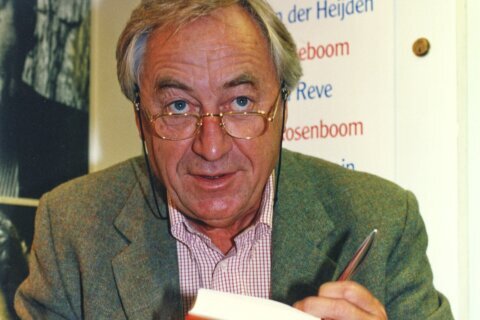WASHINGTON — Christmas is almost upon us, bringing TV airings of Ralphie using his “Little Orphan Annie” decoder ring to crack an anti-climactic code in “A Christmas Story” (1983).
It’s an annual reminder of the rich history of “Little Orphan Annie,” starting as an 1885 poem, 1924 comic strip and 1930 radio program before it became a Tony-winning Broadway smash in 1977.
Still, the version most folks remember is the 1982 film, directed by John Huston and watched by decades of children, creating the bar by which the new “Annie” adaptation shall be judged.
Enter rapper Jay-Z, who remixed the showtune “Hard Knock Life” for the hip-hop generation in 1998, and has now co-produced (along with with Will and Jada-Pinkett Smith) a Hollywood remake.
The story is set in present day as opposed to the Depression-era ’30s, but the story is more or less the same. Annie grows up in the evil orphanage clutches of Mrs. Hannigan, who is now a washed-up artist from the ’90s, and escapes the “Hard Knock” lifestyle when she’s taken in by a Downtown billionaire, who is now a telecom magnate running for mayor, rather than Daddy Warbucks.
Quvenzhane Wallis, an Oscar nominee for the indie breakthrough “Beasts of the Southern Wild” (2012), follows in the footsteps of her adorable red-headed predecessor Aileen Quinn. It’s a tough lift for Wallis to attempt such an iconic child performance, akin to remaking “The Little Princess” (1939) and fielding comparisons to Shirley Temple. But even if Wallis can’t supplant Quinn as the definitive inheritor of the role, she at least stretches herself as a triple-threat actor, singer and dancer, or, as she once told NBC’s “Today” show, “I’m like a three-in-one shampoo.” The performance has already earned her a Golden Globe nomination for Best Actress in a Comedy/Musical.
Jamie Foxx’s talents are well known, from his Oscar win for “Ray” (2004) to his cab driver in Michael Mann’s “Collateral” (2004), from his musical part in “Dreamgirls” (2006) to his comic violence in Quentin Tarantino’s “Django: Unchained” (2012). In “Annie,” he is a refreshing change of pace from Albert Finney’s 1982 performance, which felt like an angrier version of Yul Brynner in “The King and I” (1956). Meanwhile, Foxx’s character hails from Queens, providing a better basis for social commentary than Finney’s cartoonish sidekicks, the Indian snake charmer Punjab and the Asian karate bodyguard Asp, which in hindsight make us cringe from offensive ethnic stereotypes.
Unfortunately, Cameron Diaz overacts as Miss Hannigan, leaving us pining for the brilliant performance of Carol Burnett. Diaz has given great performances before (“There’s Something About Mary”), but this isn’t one of them. Burnett made us feel like we were actually watching a drunk, while Diaz makes us feel like we’re watching someone trying to act like a drunk.
Most disappointing is the famous “trip to the movies” scene. Huston’s 1982 film saluted Hollywood with a Busby Berkeley-style dance number before screening Greta Garbo’s classic romance “Camille” (1936). No doubt this is because Huston was such a pivotal part of that era himself, having directed “The Maltese Falcon” (1941), “The Treasure of the Sierra Madre” (1948) and “The Africa Queen” (1951). In the new “Annie,” writer/director Will Gluck (“Easy A”) uses this sequence as an attempt to mock “Twilight” (2008), as Ashton Kutcher, Mila Kunis and others make supernatural cameos. The gag backfires, reminding us how far mainstream movies have fallen since Hollywood’s Golden Age.
“Annie” might make for a cute family outing for the holiday season, filled with intermittent laughs and clever new takes on legendary showtunes, using the sound design of mops and brooms to kick off “Hard Knock Life” and having Annie’s reflection in a puddle during “Tomorrow.” But compared to all the other award contenders arriving this month — particularly its musical peer “Into the Woods” — it feels like a lightweight.
★ ★ 1/2
![]()
‘The Imitation Game’
If you have to bet your bottom dollar, turn your Little Orphan Annie decorder ring to spell out “The Imitation Game,” a film about codebreakers that offers much more bang for your box office buck.
Based on the book by Andrew Hodges, the film follows the true story of English mathematician and logician Alan Turing (Benedict Cumberbatch), who helps crack the Nazis’ “unbreakable” Enigma code during World War II, inventing the world’s first computer prototype in the process.
Cumberbatch has been on a serious roll the past two years, winning an Emmy for his role in TV’s “Sherlock” (2014) and dominating the big screen as Khan in “Star Trek: Into Darkness” (2013), Julian Assange in “The Fifth Estate” (2013) and the plantation owner Ford in “12 Years a Slave” (2013), where he co-starred with Wallis, the star of “Annie.”
In “The Imitation Game,” he gives easily the best performance of his career, a combination of mathematical genius, ambitious inventor, secret spy and social outcast. Turing’s real life ended in tragedy, committing suicide after the British government’s attempts to “reprogram” his homosexuality with hormonal treatments, so it’s great to see his brilliance celebrated posthumously.
The complex character study also provides juicy material for Keira Knightley (“Begin Again”), who shines as Turing’s love interest, willingly dating a man she knows is gay.
Director Morten Tyldum and screenwriter Graham Moore expertly reveal Turing’s homosexual tendencies with visual cues — the glance of an eye here, the touch of a hand there. They also manage to take a potentially dull process story about code and make it visual, at one point cutting from a moving submarine to a hand stubbing out a cigarette.
The filmmakers’ emphasis on the human elements help “The Imitation Game” to soar above most in the Oscar field. Some critics are complaining it’s too old-fashioned; this critic wishes Hollywood still made more movies this way. Expect plenty of award-season love for this old-school gem in the vein of “A Beautiful Mind” (2001) and “The King’s Speech” (2010).
★ ★ ★ 1/2
The above rating is based on a 4-star scale. See where this film ranks in Jason’s Fraley Film Guide. Follow WTOP Film Critic Jason Fraley on Twitter @JFrayWTOP, read his blog The Film Spectrum and listen Friday mornings on 103.5 FM.








